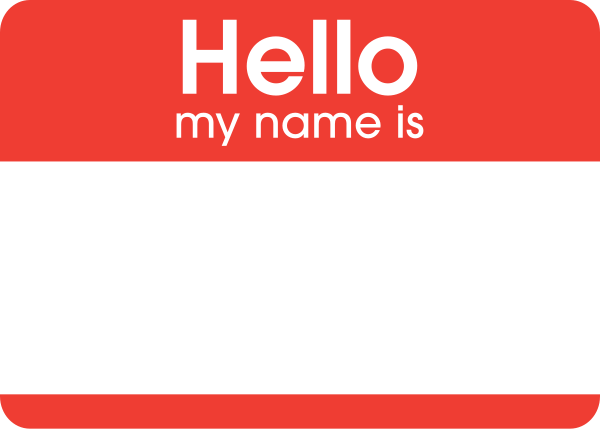5 Super-Smart Brand Names And What They Stand For…
Anyone who has ever thought about creating a company, and pretty much all brand managers and product owners here, can empathize, just how difficult it is to devise a name that is unique as well as descriptive. Among the most important tasks for the marketing team is to coin a brand name that would reflect the essence of the brand and fit seamlessly into the core ethos of the company as well. The name must be pleasing and provide a distinguishing identity amongst the ocean of other brands in the market. Not an easy task, right?
When you look out at some iconic brands, have you ever thought about how and why did the team behind it settle on that particular name for their company or product? The trust is that the best brand names have stories behind them. They mean something specific when viewed in the context of that story. They form a connection with their target audience on the basis of a shared acceptance of the story, the context, and the meaning.
Though, there are a number of brands out there that have created a niche for themselves, here are a few of our favorites names that are distinctive and have a story to tell too.
Amul
Amul is the largest company run and managed by a co-operative society. Amul is a Sanskrit word which means priceless. The company is based in Anand in Gujarat. The word Amul is an acronym and stands for Anand Milk Union Limited. It’s either a happy accident or a careful synchronization of serendipity that the acronym means so much in the context of all that the brand represents. This iconic brand stands for giving the common farmer, especially the rural women, access to economic freedom, by being part of the “White Revolution.” Individually each farmer may stand for little, but once they come together in a co-operative the collective strength is tremendous -priceless even! Of course, the product they focus on, milk, is an embodiment of purity and goodness. And who can put a price on that?
The largest search engine in the world had an accidental christening. Its founders Larry Page and Sergey Brin looked for registering websites with the name Googol, which is the digit 1 followed by 100 zeroes. But, they inadvertently searched for google.com. The domain was available and quickly registered and google.com came into being. The reference to the massive number was anything but accidental though. The number represents at the basic level, the number of web pages the engine trawls through to find a response to the questions of searches. The number also represents the staggering number of search results the engine could throw up if put to the test. But, in essence, the name represents the unbound potential of the internet and the freeing up of opportunity for those of us using it. The sky is the limit with Google.
Apple
Your favorite phone brand has quite the story attached to it of how its name was coined! The brand, right from the days of the early iMac Personal Computer, represented accessibility and ease of use. It was designed with a sense of simplicity and approachability in an age when computers were something that only scientists or mathematicians used. At one level, Steve Jobs wanted to add an element of fun to the brand name. But at another, much deeper, level he wanted to distance himself from the intimidating aura surrounding the use of computers. The product promised to be a computer for the masses and even for school children. Hence, a common, everyday Apple was chosen as a name as also an elegant but simple logo. For sure, this simple brand name worked remarkably well for Jobs at the time -and has stayed impactful since.
SKYPE
How do you communicate with folks in another office, or city, or country? Would you like to see them while you do that? Would you turn to Skype? That name has an interesting back story too -and one that is so self-explanatory that it’s always been the right call. The name Skype was derived from “Sky peer-to-peer,” as in, a way to connect individual people together one on one, from the “sky” wirelessly. This semi-technical term was then shortened to “Skyper.” Eventually the r got dropped (as sometimes our Skype calls do) and we were left with a clear, concise, descriptive, and super-smart brand name -Skype.
Micromax
It’s commendable that an Indian mobile phone manufacturer, Micromax, has established itself in such a competitive market. The brand has a loyal user-base and a slew of products the market appreciates. In the early days when the competition was the high-end phones, i.e. the iPhones, BlackBerrys, and Samsungs of the world, Micromax’s USP was budget-friendly smartphones. Micromax subtly made its presence felt. The company and the brand were all about affordability -but not at the cost of functionality or style. They promised to deliver a smartphone experience but at prices that young India could access. The name was a smart way to communicate that value – the “Micro” represents the price point and the “Max” represents the utility. This potent mix has stood the brand in good stead even as market dynamics have changed with the advent of newer brands.
Are you buzzed with these stories too? Do they offer inspiration to you as you go about devising a brand name for your product too? Perhaps you need some help as you go about doing so -if so then reach out to us at info@lokusdesign.com. We have many more stories like these -and a bunch of trued and trusted methodologies to help you craft your own winning brand story!

